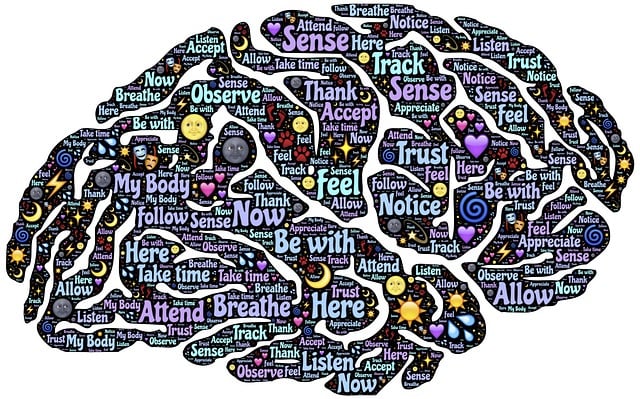Parker Hebrew Speaking Therapy offers comprehensive coping skills development through cognitive reframing, mindfulness exercises, and healthy feeling expression. Their holistic approach integrates trauma support services, mental wellness journaling, and risk management planning to build resilience for long-term emotional health. By emphasizing self-care, cultural sensitivity, and tools like their Mental Wellness Podcast Series, Parker Hebrew equips individuals with effective coping mechanisms to manage stress, anxiety, and life's challenges.
Coping skills are essential tools for navigating life’s challenges and maintaining emotional well-being. This comprehensive guide, inspired by Parker Hebrew Speaking Therapy, delves into effective strategies for personal growth. We explore cognitive reframing techniques to shift perspectives, build resilience for enduring adversities, and introduce mindfulness practices for calming minds and bodies. Additionally, we emphasize the critical role of self-care in fostering healthy coping mechanisms.
- Understanding Coping Skills: A Foundation for Emotional Well-being
- The Role of Cognitive Reframing in Overcoming Challenges
- Building Resilience: Strategies for Facing Life's Adversities
- Mindfulness and Relaxation Techniques: Calming the Mind and Body
- Practicing Self-Care: Nurturing Yourself for Effective Coping
Understanding Coping Skills: A Foundation for Emotional Well-being

Understanding coping skills is a cornerstone for fostering emotional well-being. These skills, taught and enhanced by therapists like those at Parker Hebrew Speaking Therapy, equip individuals with effective strategies to navigate life’s challenges. By learning to recognize and manage their emotions, people can build resilience, improve stress tolerance, and reduce the negative impact of traumatic experiences.
Coping skills development involves a range of techniques, including cognitive reframing, mindfulness exercises, and healthy expression of feelings. These promotion techniques not only help in immediate stress management but also lay a foundation for long-term emotional well-being. Trauma support services, often integrated into coping skill training, are vital for those who have experienced adversity, offering safe spaces to process and heal from past traumas while learning adaptive coping mechanisms.
The Role of Cognitive Reframing in Overcoming Challenges

Cognitive Reframing, a key technique within Parker Hebrew Speaking Therapy, plays a pivotal role in helping individuals overcome challenges and enhance their coping skills. This process involves challenging negative thought patterns and replacing them with more positive and realistic ones. By reframing cognitive distortions, individuals can gain new perspectives on difficult situations, fostering resilience and improved mental wellness. For instance, viewing setbacks as opportunities for growth rather than failures can significantly impact one’s emotional state, encouraging a more proactive approach to problem-solving.
The practice of Cognitive Reframing is effectively supported by tools such as Mental Wellness Journaling Exercise Guidance. Through regular reflection and self-analysis, individuals can identify recurring negative thoughts and systematically replace them with alternative, more adaptive interpretations. This process not only strengthens coping mechanisms but also enhances social skills training, enabling better interaction and support from peers and mental health professionals alike. Additionally, Risk Management Planning becomes easier when equipped with cognitive reframing techniques, allowing for a proactive approach to mitigate potential risks and promote overall well-being.
Building Resilience: Strategies for Facing Life's Adversities

Building resilience is a key aspect of coping skills development, empowering individuals to face life’s challenges with strength and adaptability. At Parker Hebrew Speaking Therapy, we recognize that adversity is an inevitable part of life, but with the right strategies, it can be transformed into opportunities for growth. Our approach involves teaching effective coping mechanisms and fostering a positive mindset, enabling clients to navigate tough situations with resilience.
One powerful tool in this process is mental wellness journaling, a practice that encourages reflection and self-awareness. By documenting thoughts and experiences, individuals gain insights into their emotional responses, fostering a deeper understanding of themselves. Additionally, engaging in positive thinking exercises can shift perspectives, allowing people to view adversities as stepping stones to personal development. The Mental Wellness Podcast Series Production at Parker Hebrew offers guidance and shares valuable strategies for cultivating mental wellness, providing accessible resources to support individuals on their journey toward resilience.
Mindfulness and Relaxation Techniques: Calming the Mind and Body

Mindfulness and relaxation techniques are powerful tools for calming both the mind and body, playing a pivotal role in coping skills development. At Parker Hebrew Speaking Therapy, we emphasize these practices as part of our comprehensive approach to mental wellness. Techniques like deep breathing exercises, meditation, and progressive muscle relaxation help individuals disengage from anxious thoughts and reduce stress responses, thereby fostering a sense of calm and control.
By integrating mindfulness into daily routines, individuals can enhance their ability to manage challenging situations. This is particularly beneficial in mitigating anxiety relief and promoting mental illness stigma reduction efforts. Ultimately, these practices empower people to cultivate resilience, enabling them to navigate life’s twists and turns with greater equanimity and overall improved mental health.
Practicing Self-Care: Nurturing Yourself for Effective Coping

Practicing self-care is an integral part of developing effective coping skills, especially for individuals seeking support through therapeutic practices like those offered by Parker Hebrew Speaking Therapy. Nurturing yourself goes beyond basic needs; it involves intentional activities that promote physical, emotional, and mental well-being. This could include engaging in regular exercise, adopting healthy eating habits, or carving out time for hobbies and relaxation. By prioritizing self-care, individuals build a foundation of resilience, enabling them to better navigate life’s challenges.
Cultural sensitivity plays a significant role in this process, particularly within the context of mental healthcare. Recognizing and respecting individual cultural backgrounds enhances therapeutic outcomes, fostering environments where people feel understood and supported. Parker Hebrew Speaking Therapy, for instance, caters to diverse communities, ensuring that coping strategies are tailored to meet unique needs while boosting confidence and overall mental wellness through specialized coaching programs development.
Coping skills development, as explored by Parker Hebrew Speaking Therapy, is a multifaceted approach to emotional well-being. By understanding and practicing techniques like cognitive reframing, building resilience, mindfulness, relaxation, and self-care, individuals can navigate life’s challenges more effectively. These strategies not only enhance coping abilities but also foster overall mental health and resilience. Incorporating these principles into daily routines enables folks to thrive in the face of adversity, ensuring a more balanced and fulfilling life.














